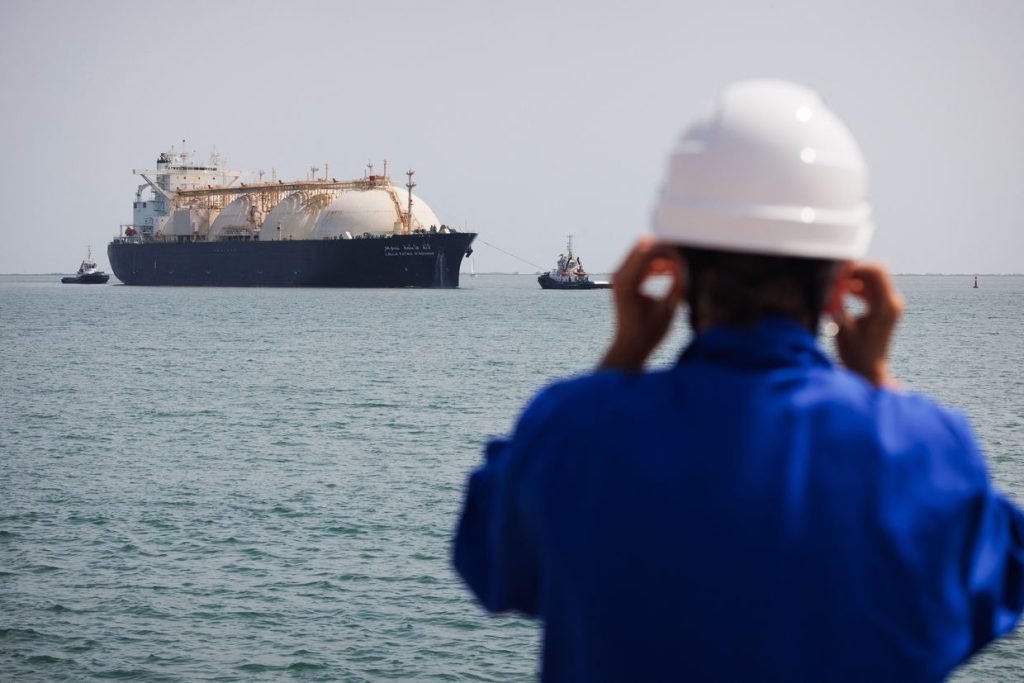Gasum, a major gas supplier to the Nordic region, announced that they will cease purchasing and importing Russian liquefied natural gas (LNG) in July in compliance with new European Union sanctions. This decision comes after EU member nations adopted a new package of sanctions against Russia, targeting the country’s gas exports for the first time. Gasum will not purchase or import Russian LNG as of July 26, and the company is working within the legal framework to navigate the existing agreements they have with Gazprom Export. The geographical distribution of Finnish gas imports has shifted, with a significant increase in Western LNG replacing Russian pipeline gas in recent months.
The Finnish government is taking further steps to reduce reliance on Russian gas imports, with plans to prepare a comprehensive ban on Russian gas imports. Riku Huttunen, the head of the Energy Department at the Ministry of Economic Affairs and Employment, confirmed that a working group is being formed to draft legislation that would further restrict the import of Russian gas. This move aligns with the broader EU efforts to reduce dependency on Russian energy sources in light of the conflict in Ukraine. The shift towards Western LNG sources, including imports from the United States and Norway, reflects a strategic response to geopolitical tensions and sanctions imposed on Russia.
In Ukraine, the conflict with Russia continues to escalate, with reports of an increase in Russian chemical weapons attacks on the battlefield. The Ukrainian government has also made allegations of Russian saboteurs being involved in an arson attack on a German factory. President Zelensky dismissed a Lieutenant General who was accused by soldiers of causing heavy losses, highlighting the internal challenges faced by the Ukrainian military. The EU Council has announced a range of measures in response to the conflict, including sanctions and support for Ukraine in their efforts to defend against Russian aggression.
The decision by Gasum to cease Russian LNG imports reflects a broader shift in European energy policy towards reducing reliance on Russian gas. The EU sanctions targeting Russian gas exports are part of a coordinated effort to pressure Russia in response to the conflict in Ukraine. As Finland and other European countries explore alternative sources of gas, including Western LNG imports, the energy landscape in the region is undergoing significant changes. The Finnish government’s commitment to preparing a legislative proposal to further restrict Russian gas imports demonstrates a proactive approach to safeguarding energy security.
The ongoing conflict in Ukraine serves as a backdrop to the energy dynamics in Europe, with implications for gas supply chains and geopolitical relationships. The use of chemical weapons and allegations of sabotage highlight the complexity of the situation and the challenges faced by both Ukraine and its international allies. The EU’s support for Ukraine, along with the imposition of sanctions on Russia, underscores the unity of European nations in response to the crisis. The diversification of gas imports away from Russia towards Western sources reflects a strategic realignment in the wake of geopolitical tensions.
In conclusion, the decision by Gasum to cease Russian LNG imports and the Finnish government’s plans to further restrict Russian gas imports signal a shift in energy policies in Europe. The ongoing conflict in Ukraine and the use of chemical weapons underscore the gravity of the situation and the need for collective action. As European countries navigate the challenges of energy security and geopolitical tensions, diversification of gas sources and strategic partnerships with non-Russian suppliers become critical. The EU’s sanctions against Russian gas exports mark a pivotal moment in European energy policy, emphasizing the importance of solidarity and cooperation in response to regional security threats.


